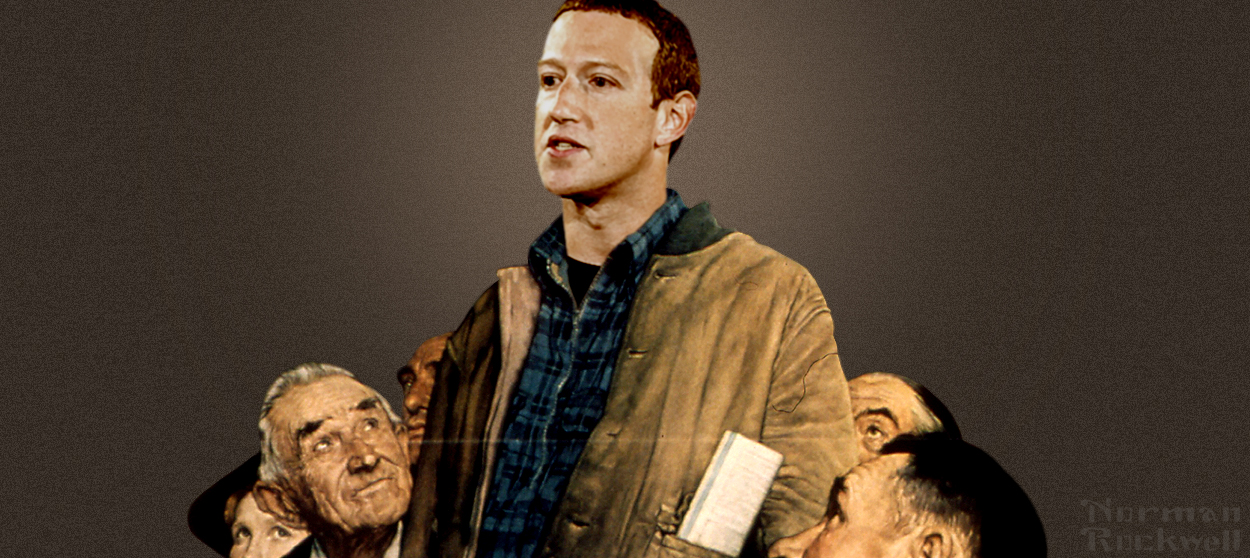Mark Zuckerberg's reckless idea of free speech
The Facebook CEO's idea of expression is stuck in the past


A free daily email with the biggest news stories of the day – and the best features from TheWeek.com
You are now subscribed
Your newsletter sign-up was successful
Mark Zuckerberg has rarely been so compelling.
Facing increased scrutiny — especially after leaked audio of an internal meeting in which Zuckerberg called Sen. Elizabeth Warren (D-Mass.) an existential threat — the Facebook CEO outlined his vision of free speech and his company's role in promoting it at Georgetown University on Thursday.
Often notoriously staid and monotone, in this instance, Zuckerberg was lucid, forceful, and even inspiring. He invoked free speech as a kind of bedrock of democratic societies, and a basic necessity for challenging power and ensuring freedom. It was heady, powerful stuff. But as he went on to defend the company's controversial decision to allow politicians to run ads full of lies for fear of "potentially cracking down too much," it became ever more clear Zuckerberg adheres to an ideal of free speech that is stuck in the past.
The Week
Escape your echo chamber. Get the facts behind the news, plus analysis from multiple perspectives.

Sign up for The Week's Free Newsletters
From our morning news briefing to a weekly Good News Newsletter, get the best of The Week delivered directly to your inbox.
From our morning news briefing to a weekly Good News Newsletter, get the best of The Week delivered directly to your inbox.
The point that Zuckerberg returned to over and over again is that he believes more speech is better, and that erring on the side of more expression is always preferable. Essentially, Zuckerberg argued that progress comes from empowering individuals to express themselves, which in turn collectively allows societies to work out their problems in public and with all the facts in front of them.
It was, in short, a classical defense of free speech. Citing the emergence of Black Lives Matter and the #MeToo movement, Zuckerberg argued that social media forms a fifth estate, a decentralized locus of power that is stronger precisely because it challenges the centralized kind.
That's all well and good, but what Zuckerberg didn't add was that centralized power is exactly what Facebook's outsized influence represents. And that wasn't the only problem with this speech. Zuckerberg said we exist in a moment of increased polarization and misinformation, but failed to acknowledge the role Facebook played in creating that environment. He drew on established defenses of free speech that felt both familiar and convincing on their own, but didn't mention the dramatic ways in which the world has changed in recent years thanks in large part to sharing platforms like his. And while arguing in favor of always maximizing speech, he seemed to conflate the importance of protecting speech, and amplifying speech.
This is all emblematic of a man who is employing pre-web thinking in a post-web world. Facebook — and other sharing platforms — have indisputably made it easier to share one's views with the world. But the original idea of free speech didn't account for the dynamics of virality and algorithms. Platforms like Facebook are designed to favor and amplify certain kinds of speech — the reassuring, the inflammatory, the controversial — even if the claims being made and the views being shared aren't true. For example, an over-the-top rant about climate change being a hoax is bound to get more attention than a nuanced take on the scientific realities of our climate dilemma.
A free daily email with the biggest news stories of the day – and the best features from TheWeek.com
Zuckerberg also talked about societies working out their problems by maximizing speech. While that is of course a basic, fundamental ideal, it also has the unintended consequence of giving different perspectives equal weight and therefore promoting and legitimizing each side. For example, people who wish to deny certain groups rights or who want to make bigoted arguments are given equal footing with people who shouldn't have to defend their right to simply exist. To ignore this reality and focus only on the happy dream of spirited debate glosses over how the internet facilitates communities rooted in awful ideas, like white supremacy or other hate speech.
That's not to say trying to decide who should say what is a simple matter. Making distinctions is undoubtedly hard. How a platform identifies the difference between satire and aimless maliciousness, protected speech and unprotected speech, or balances the differing values at stake on a global platform is enormously complex. But it must be done. Listening to the CEO of Facebook talk about how his personal beliefs about free speech influence the decisions of a platform with billions of users was eerie and unsettling. No person or private company should have that kind of unchecked or unregulated power.
Free speech is certainly an ideal worth fighting for. But Facebook has already altered our relationship with free speech. Zuckerberg therefore has a duty to make a good faith effort to curb misinformation and hate. Not doing so, and claiming it's all in the name of freedom, is disingenuous at best, reckless at worst.
Want more essential commentary and analysis like this delivered straight to your inbox? Sign up for The Week's "Today's best articles" newsletter here.
Navneet Alang is a technology and culture writer based out of Toronto. His work has appeared in The Atlantic, New Republic, Globe and Mail, and Hazlitt.
-
 Health insurance: Premiums soar as ACA subsidies end
Health insurance: Premiums soar as ACA subsidies endFeature 1.4 million people have dropped coverage
-
 Anthropic: AI triggers the ‘SaaSpocalypse’
Anthropic: AI triggers the ‘SaaSpocalypse’Feature A grim reaper for software services?
-
 NIH director Bhattacharya tapped as acting CDC head
NIH director Bhattacharya tapped as acting CDC headSpeed Read Jay Bhattacharya, a critic of the CDC’s Covid-19 response, will now lead the Centers for Disease Control and Prevention
